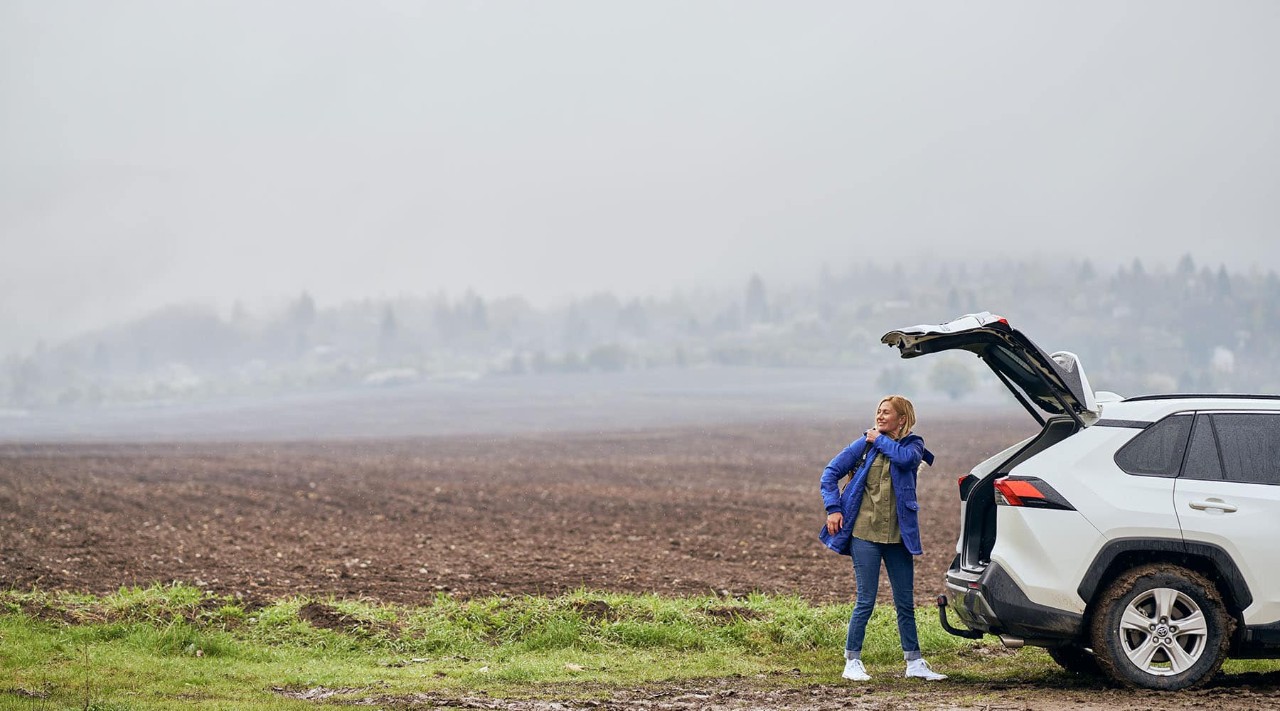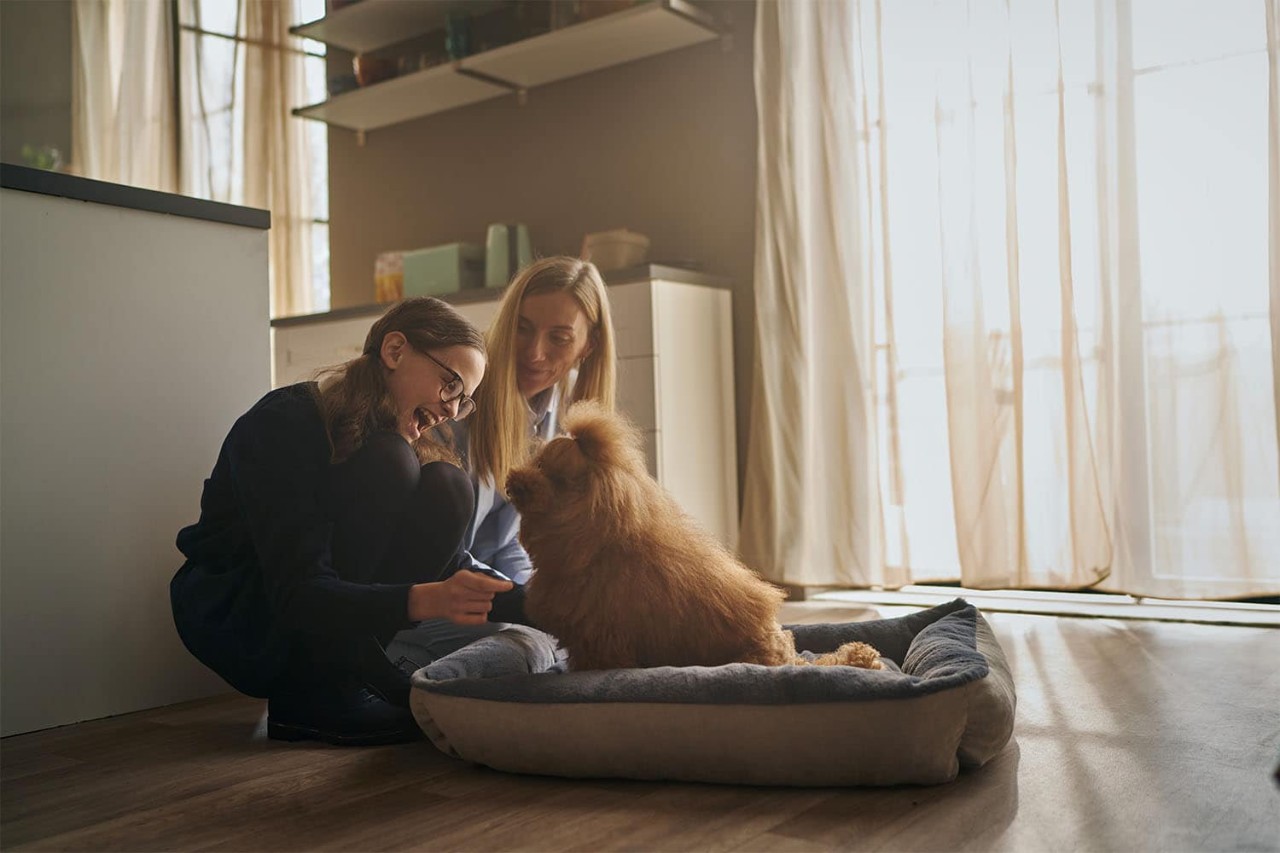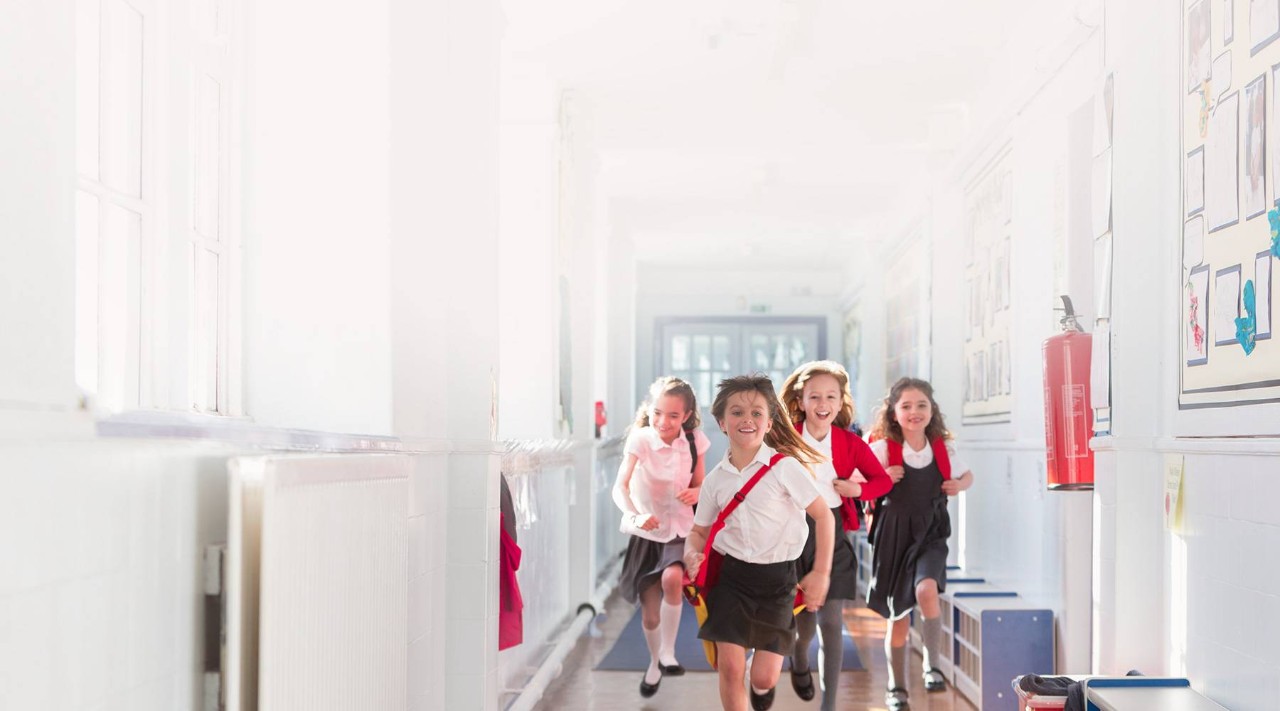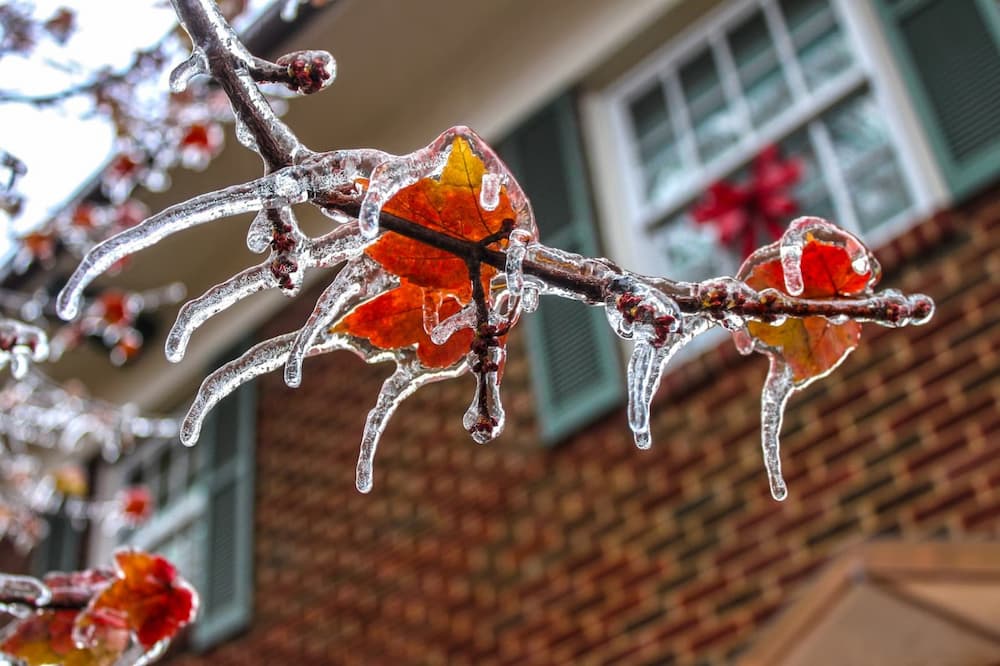losses that may arise from any reliance upon the information contained in this guidance.
How cold weather can affect your home
by Melanie May | 3 min read October 14th, 2021
Oh, the weather outside is frightful, but the fire is so delightful! However, lighting the fire isn’t the only thing you need to do to protect your home from adverse weather.
Winter weather can affect your house in many ways, it's not just about plummeting temperatures. From gushing gutters to plumbing problems, and issues with windows, roofs and doors, here are just some of the ways cold weather can affect your home. We also give you some handy tips to prevent damage from occurring in the first place.
Blocked Gutters
In winter, the wind can get quite lively here in Ireland. Leaves and other debris get blown around and lodged in gutters. Your downpipes may end up getting clogged from this which could cause water to leak into your home.
If temperatures really plummet, snow and ice can build up in blocked gutters and form ice dams. If these are left to grow, they can seep underneath the roof and into your home. They can also break the gutters and damage the roof and anything that they fall onto.
Prevention tips — clean your gutters before the winter months and fit a gutter guard.
Damage control — if an ice dam forms, use de-icer to melt the ice as soon as possible.
Frozen Pipes
A cold weather snap can freeze pipes. Those living in poorly insulated houses are at the greatest risk of this happening. Pipes exposed to cold air are the most vulnerable. When water freezes, it expands and puts pressure on whatever is trying to contain it. A burst pipe can cause serious damage to your home so it is important to take action as soon as possible.
Prevention tips — leave your central heating running for longer but at a lower temperature, and if your tank is in the attic, leave the attic door open a tad to allow heat in and keep the pipes warm. You can also insulate pipes with heat tape.
Damage control — if the pipe is not damaged, you can try gently thawing the pipe with a hairdryer on the lowest setting. The best advice, though, is to call in a registered plumber.
Cracking Caulk
Caulk is the substance used to seal windows from the outside elements. Winter temperature fluctuations can cause caulk to pull away from windows. This can lead to draughts, condensation build up and house heat loss. This is suboptimal especially when trying to keep heating bills low.
Prevention tips — before the cold weather sets in, check all your windows and reapply caulk to any cracks.
Damage control — limit any draughts by hanging heavy, lined curtains.
Mould Infestations
During the cold weather, we tend to batten down the hatches and shut all windows and doors to keep the heat in and elements out. However, this results in your house not having adequate ventilation. As a result, humid air builds up and condensation gathers which creates ideal damp conditions for mould to grow.
Prevention tips — use a dehumidifier to reduce the moisture in the air. Make sure air vents are open and not blocked. When having a shower and cooking, open windows to allow moisture to escape, but keep the doors shut so steam doesn’t travel to other rooms.
Damage control — if mould is growing in your home, it's important to remove as much of it as you can and fix the problem causing the dampness. If you clean up the mould but don't fix the cause, the mould will most likely return.
Increased Heating
When the temperatures drop outside, we usually increase the heating inside to keep us nice and toasty. However, this can put an added strain on wallets over the winter.
Prevention tips — winter-proof your home by reading our blog post on how to make your home energy efficient.
Damage control — if you haven’t winter-proofed your home, one of the best things that you can do is install a room thermostat for your central heating system and have it fitted by a professional.
As you can see, cold weather can affect your home in many ways, but there are lots of things you can do to prevent damage from happening in the first place.
losses that may arise from any reliance upon the information contained in this guidance.






